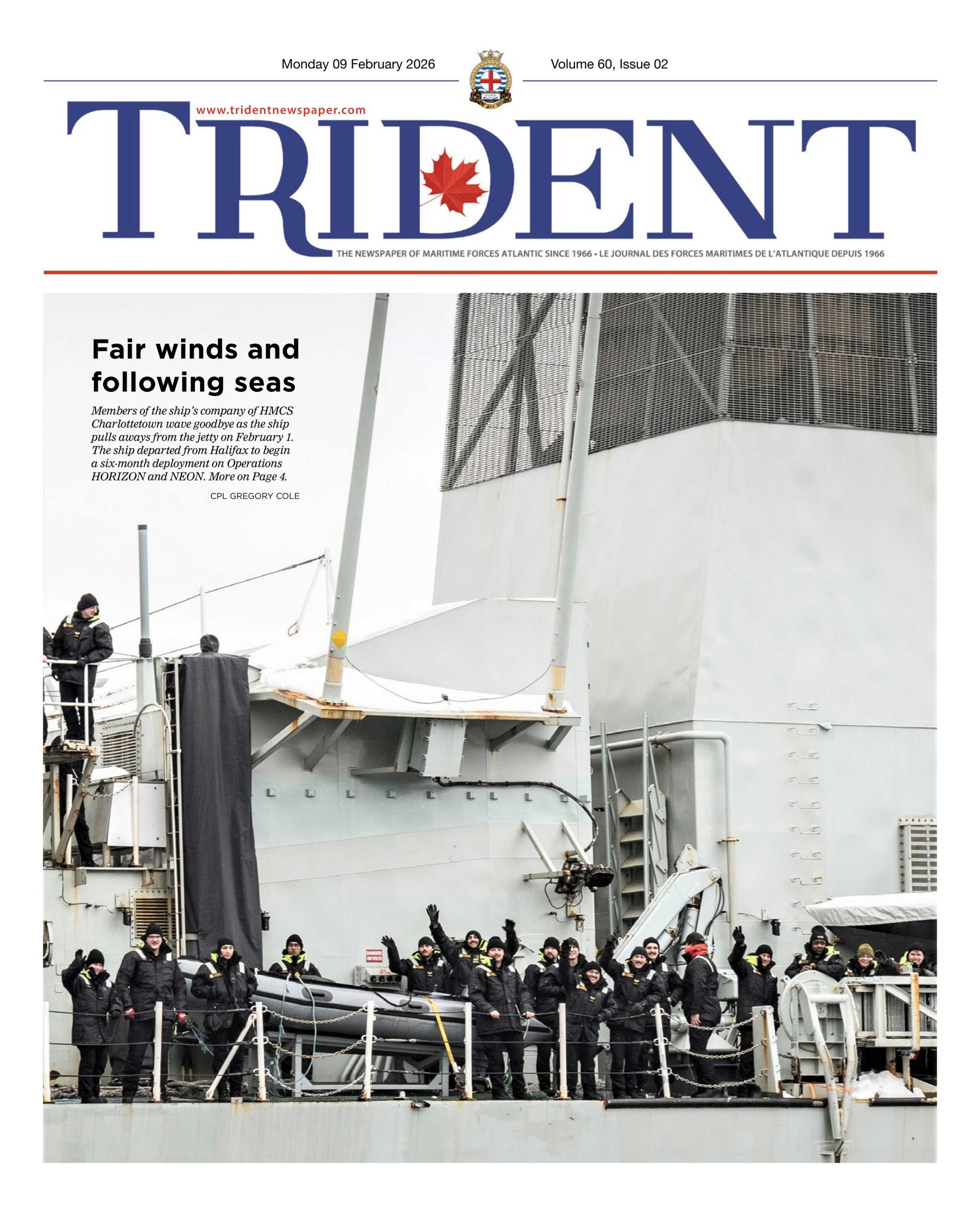
What does it take to be a CAF CISM Running athlete?
By Lt(N) Michael Bergeron,
Note: Twelve members of the CAF CISM Running Team, including Lt(N) Michael Bergeron and Lt(N) Natalia Borszczow of Campus Atlantic and WO Charlene Arsenault of CF H Svcs C(A), recently completed a week-long training camp in Esquimalt, BC.
What does it take to be a CISM Running athlete? It takes many early mornings to get kilometres in before a full day of work, dedicating your Saturdays to long runs and going that extra mile every single time. For most people, this goal seems out of reach and this standard too high to achieve. For many years I felt the same way. It took me many kilometres, many early mornings, many races, and many practices working on form, agility, and speed to become the runner I am today. If you asked my teammates at training camp, they would say it takes a lot of heart and a lot of dedication to put in the hours and the focus to run at the national and international level.

Photo: Submitted
Why do high performance runners need a training camp? As runners, we can all benefit from focusing on our weaknesses and learning how to improve technique, endurance, and pace through specific guidance/lessons by training experts and coaches. This was one of the main focuses during the training camp with new coach Aaron Grainge who joined team manager Major Mike Mueller. Having guidance and support from personal trainers and coaches can benefit the athlete tremendously, by reducing injury and allowing athletes to reach their peak running potential.
Our running adventure began on March 12 and ran until the 16th in Esquimalt, BC. During this time we didn’t just run, we spent hours in the gym, the classroom, and the cafeteria fuelling our bodies for peak performance. We spent our mornings running through the beautiful scenery of Elk Lake, Thetis Lake, and the track at the Pacific Institute for Sport Excellence. We also participated in a VO2 max testing, allowing our coaches to individualize training, and determine accurate paces for our workouts. VO2 max helps measure the maximum rate of oxygen consumption an athlete can attain while running at peak speed. We spent many afternoons at the Naden Athletic Center learning about proper weightlifting techniques while also developing our running muscles. I enjoyed the critical feedback from the coaches that helped me improve my technique and helped me to prevent future injuries. I also enjoyed learning from others as we had a diverse group of athletes, from 5k specialists to the marathon runners. it was a great opportunity to trade training success, tips, and tricks to help each other perform to our potentials.
During this week we also focused on nutrition, learning how, and what, to eat to fuel our bodies for our training, workouts, and races. We even had a few briefs on injury prevention which I found helpful, and I’m eager to implement what I learned into my everyday training to stay healthy and injury free.
Next on the agenda for the CAF CISM Running Team is the marathon in Beirut, Lebanon 9-13 Nov 2018 and a cross country race in Luanda, Angola 8-13 Nov 2018.
Team selection:
Only marathon results will be considered for marathon team selection and only 5k* and 10k results will be used for cross country team selection. *Note Women’s cross country race is only 5k distance; it is recommended 5k results be submitted. Results for all races will be due by August 27, 2018, in order to select teams and allow time for goal race training and event travel planning. The fastest times submitted will be used for team selection and rolling down to the next fastest times will occur if primary athletes are not able to race. Competitive times for the marathon are sub 2:40:00 for men and 3:10:00 for women; for Cross country sub 16:00 minute 5k for men and 18:00 for women.






